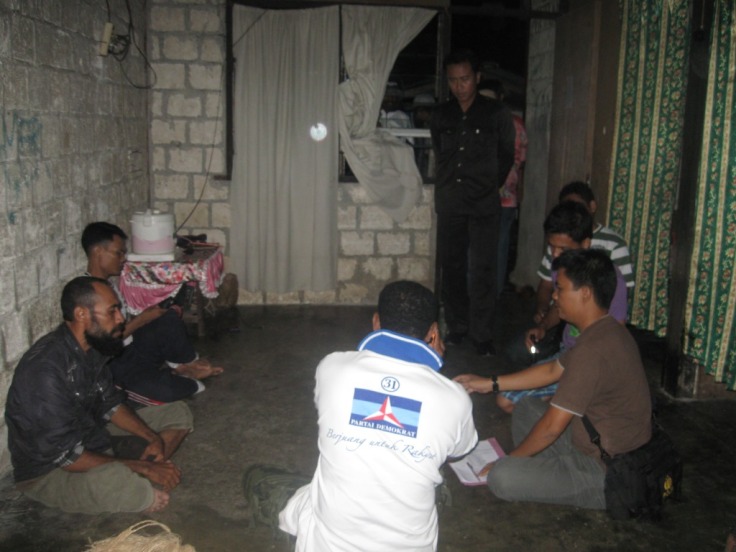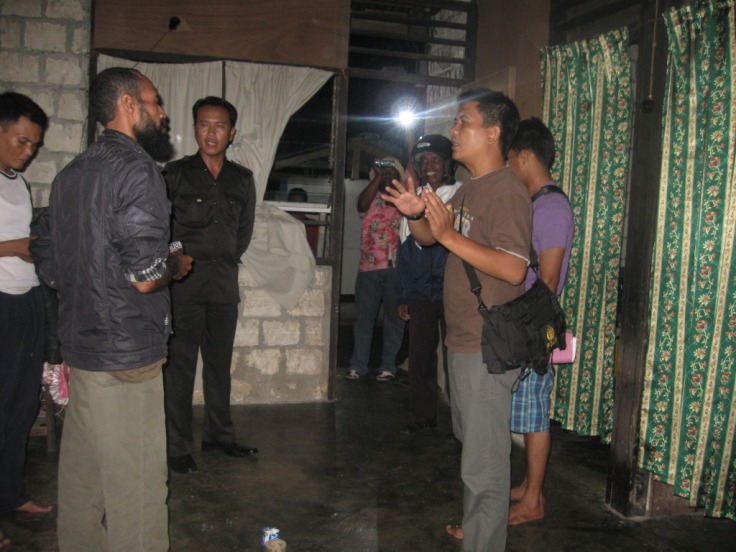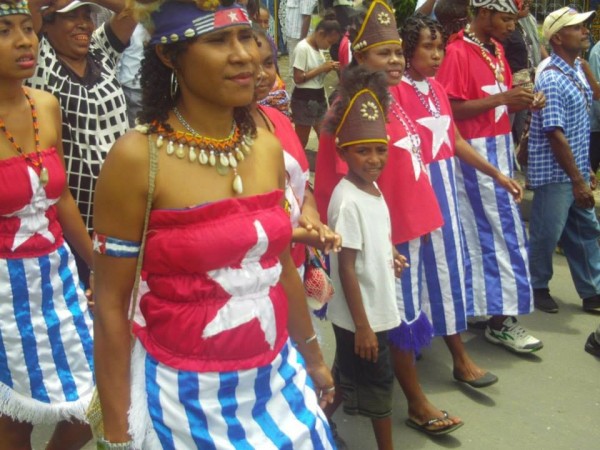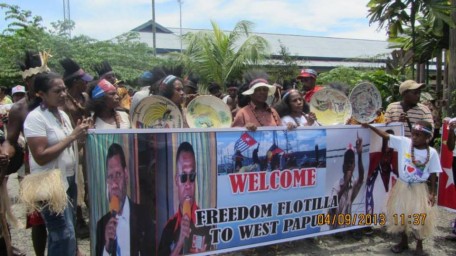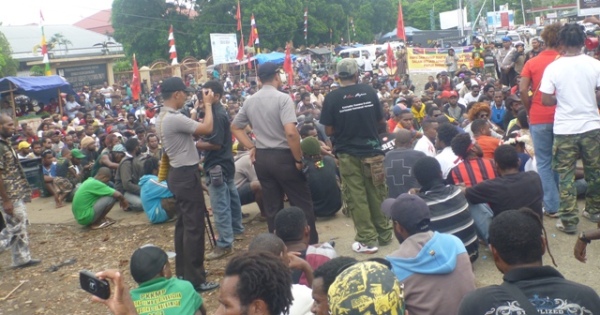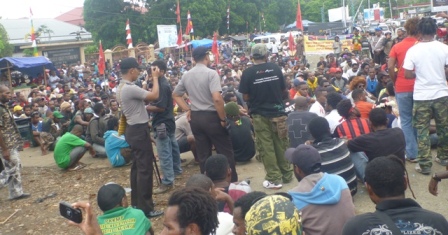Opinion
By : Rufinus Madai
written March 12, 2014
The conflict in Papua points to there being two parties competing for the role to be seen to be ‘dealing with’ those regarded as the opposition, the Papuan Freedom Movement. These two parties being the Indonesian Armed Forces versus those which have become known in Papua as ‘OTK’ being ‘unidentified person/s’. But in any case the end result is the same, the death of innocent indigenous Papuans. It is the indigenous Papuan community that suffers the constant loss of loved ones, the extreme stress, worry and fear that results from the continual violence committed by these two parties. When we hear of calls for an end to the violence yet again from the civilian sector in particular regions of Papua we know that behind that there has been yet again victims as a result of violence by certain parties. Is Papua going to always live in this situation of violence and conflict such that the people feel forced to struggle to find peace?
Of course the indigenous Papuan community dearly hopes that peace will come about in the land but to the present time the voice of Papuans calling for change has been being increasingly silenced. Nevertheless the community continues calling for peace without ceasing and will continue to do so until the day if Indonesian Government succeeds in ensuring their voice is no more. Papuans long for peace but they know that those evil and cruel actions that are being carried out constantly by those holding the power in Indonesia must be stopped. Actions that ruin the entire lives of others, that create great loss and destroy the harmony and togetherness between those living in the same land. The Papuan community desires that peace between people which will eventually create an atmosphere of brother and sisterhood in the land, so that there may be harmony between different religions, cultures, tribes, races and social groups in the one land.
To that end a number of groups and components within the Papuan community have been calling for dialogue between Jakarta and Papua. The call has come from the primary religious groups in Papua, from the Papuan Peace Network (Jaringan Damai Papua or JPD) from NGO’s, human rights organisations in Papua and others that focus on humanist values. These groups remain committed to bringing an end to the inhumane acts that are being committed against human beings in Papua by the Indonesian military, police, ‘unidentified persons’ (OTK) and paramilitary groups (GPK). If that dialogue is to be successful both parties must convey their hopes and concerns in an open manner with the mutual goal of bringing to an end to the conflict in Papua. For as long as those concerned do not unite in a mutually open way to discuss the problems, there will continue to mutual undermining of each other, continually each will see the other as enemy and the Indonesian Armed Forces and the TPN/OPM will continue to kill each other.
Of course those who are the primary victims in the middle of this conflict are the little people. The Indonesian Armed Forces as well as some elements of the TPN/OPM not only sacrifice the community in their armed conflict but also continuously have the effect of hindering development in Papua. If we consider the situation of the Papuan community at this time, most still live in poverty, are oppressed, are being treated cruelly by the Indonesian Armed Forces, arrested and many are being killed whether by overt or covert means. Furthermore the community is feeling the Central Government’s Special Autonomy package has been forced on them. Indeed Special Autonomy has been implemented in the community but it has totally failed to bring about any positive changes at the level of the people. The Indonesian Government has never recognised the specialness of the Papuan community and so has never made adjustments accordingly so that their plans might meet the hopes of the Papuan community. How can local leaders possibly develop Papua under Special Autonomy with such conditions?
We must look at the primary causes of why there are so many tragic incidents in Papua, so many atrocities committed, so many ‘developments’ that are not in accordance with the hopes of all citizens in Papua. And we certainly don’t need to look far for the answers as they are very black and white. At the root of the problem is that Indonesia’s idea is to develop Papua with a security approach and in the sole interests of the Republic of Indonesia. In bringing that about they are creating conflict in Papua such that the indigenous civilian population is forced to live in a situation where there is no peace. Where the victims are many indigenous Papuans and even nature itself of Papua is being destroyed.
Indonesia is well aware of the extent of the problems in Papua . If Indonesia truly regards the indigenous community of Papua as part of the Republic of Indonesia, then they must stop allowing them to suffer continuously. The number of lives that have been lost in even the regions of Kab, Nabire, Paniai, Deiyai, Dogiyai and Puncak Jaya in this month of Ramadan are by no means small in number. The extent of grief over people lost in Papua itself creates a moral demand on Jakarta to open itself to dialogue with Papua. The longer the time before dialogue occurs the harder it will be for Jakarta to be received by the Papuan community. For how can the indigenous Papuan community possibly truly feel that the Indonesian Government are their leaders whilst this situation is allowed to continue? Where is Jakarta’s morality if they show no heart to help and have no sense of solidarity with those who grieve over so much loss? The situation is now most extreme in Papua and yet still to date the conflict in Papua has not been discussed in a way that is just, peaceful, democratic and dignified.
The best way to build a bridge between Papuan and Jakarta is to carry out dialogue with a neutral third party. Let us all lobby so that this dialogue becomes a reality in the interests of Papua becoming a land of peace.
The Writer is a post-graduate level theological student at the Catholic Seminary in Abepura, Papua.
The Opinions stated in this article are those of the author’s, and are not necessarily shared by West Papua Media, they are published to reflect the diversity of opinion within Papuan civil society and to stimulate discussion between internal components and international solidarity networks


